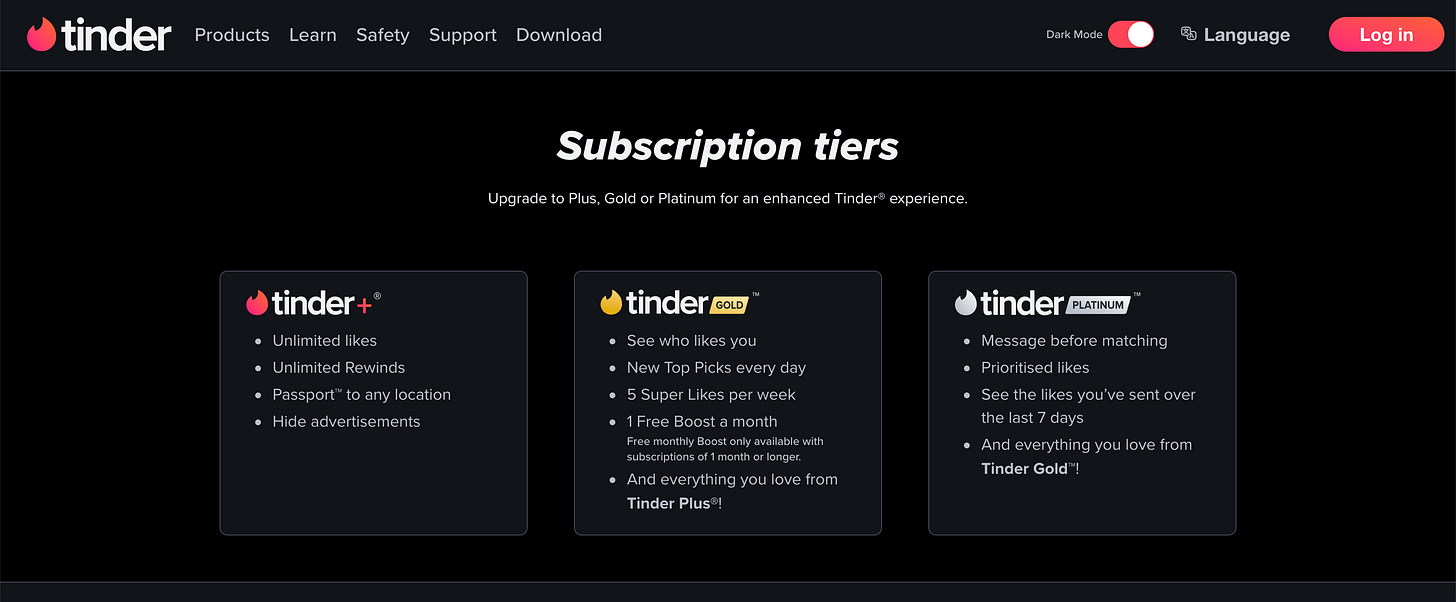👋 Hello! Welcome to this week’s ADPList’s Newsletter; 🔒 subscriber-only edition 🔒weekly advice column. Each Tuesday, we tackle design, building products, and accelerating careers. We’re looking for sponsors! If you’re interested in sponsoring our newsletter, let’s chat.
This week, we’re going to 🔒 share exclusive insight 🔒 on, Tinder.
I have been following Rosie Hoggmascall (Former Product Growth Lead at Peanut and a Top Testing Influencer in 2023), and she shared her observation of how Tinder was growing with design and monetizing. I was captivated by a design like this — where it’s driven by small design changes, rooted in growth models, and explained in such actionable detail. I asked Rosie if I could feature her original article and deep dive into Tinder — thankfully, she agreed! Many products already look to Tinder for inspiration, and I suspect this story will only increase that trend. Enjoy!
Follow Rosie Hoggmascall on LinkedIn and Medium.
Get your work organized & productive with the exclusive Notion x ADPList series
We’re partnering with Notion to help you become more productive and organized. This is a 100% free series in November that will boost your career!
This is the most popular dating app in history
Tinder generated over $1.6 billion in revenue in 2021, 17% up from the year before. What’s mind-blowing is that it is only the 5th most lucrative dating app out there…
Despite being a number 5 😉, with 75 million monthly active users and 9.6 million subscribers (as of 2021), there’s a huge amount to learn from Tinder when it comes to monetization, UX, pricing, and user segmentation.
I’ll cover each one-by-one below and uncover how Tinder manages to design for monetize so well.
1. Tinder’s early UX flow: activation over monetization
Similar to Bumble, Tinder allows users to experience core functionality before pushing them to pay. I’m able to journey through onboarding and swipe on some profiles before any paywalls.

The reason for this is that you don’t want to stop users from reaching the magic moment. Pushing monetization too hard for a product with a good freemium experience risks churning users too early.
This is especially important for dating product where a large proportion of freemium users are people who will have success no matter what: i.e. young, single, attractive women.
According to Andrew Chen, due to the nature of Tinder’s network effects, the ‘hard’ side of the network (young, attractive women) is in high demand by the ‘soft’ side of the network (men), and therefore women find it easier to match.
2. Power of Personalization: segment your user base
In Lenny’s Podcast, ex-CPO at Tinder, Ravi Mehta explained that Tinder’s monetization strategy has two key components:
Subscription
One-off payments
Within the subscription, there are three tiers (and counting). This is a similar model used by other dating apps like Bumble. The reason this model increases revenue is that it is personalized to different user’s willingness to pay.
Tinder has three subscription products: Tinder Plus, Tinder Gold, and Tinder Platinum.

What’s interesting is when I learn about each of these in the user experience.
I had no idea there was such a thing as Tinder Platinum for weeks. I can’t even see Platinum on the list of in-app purchases on Tinder’s app store listing.



